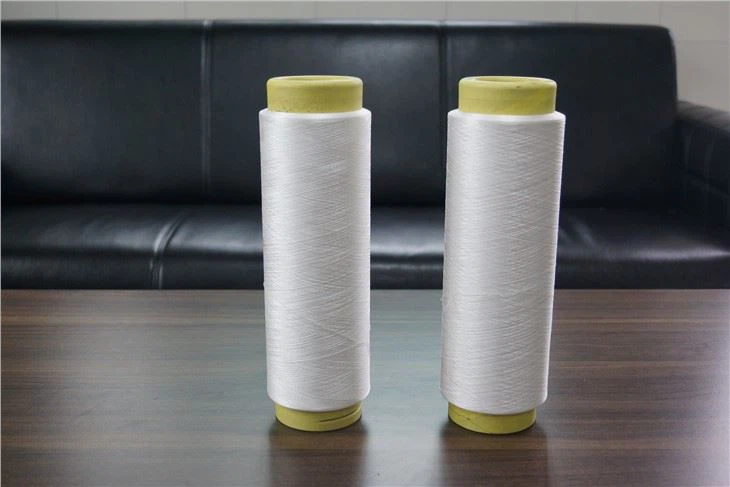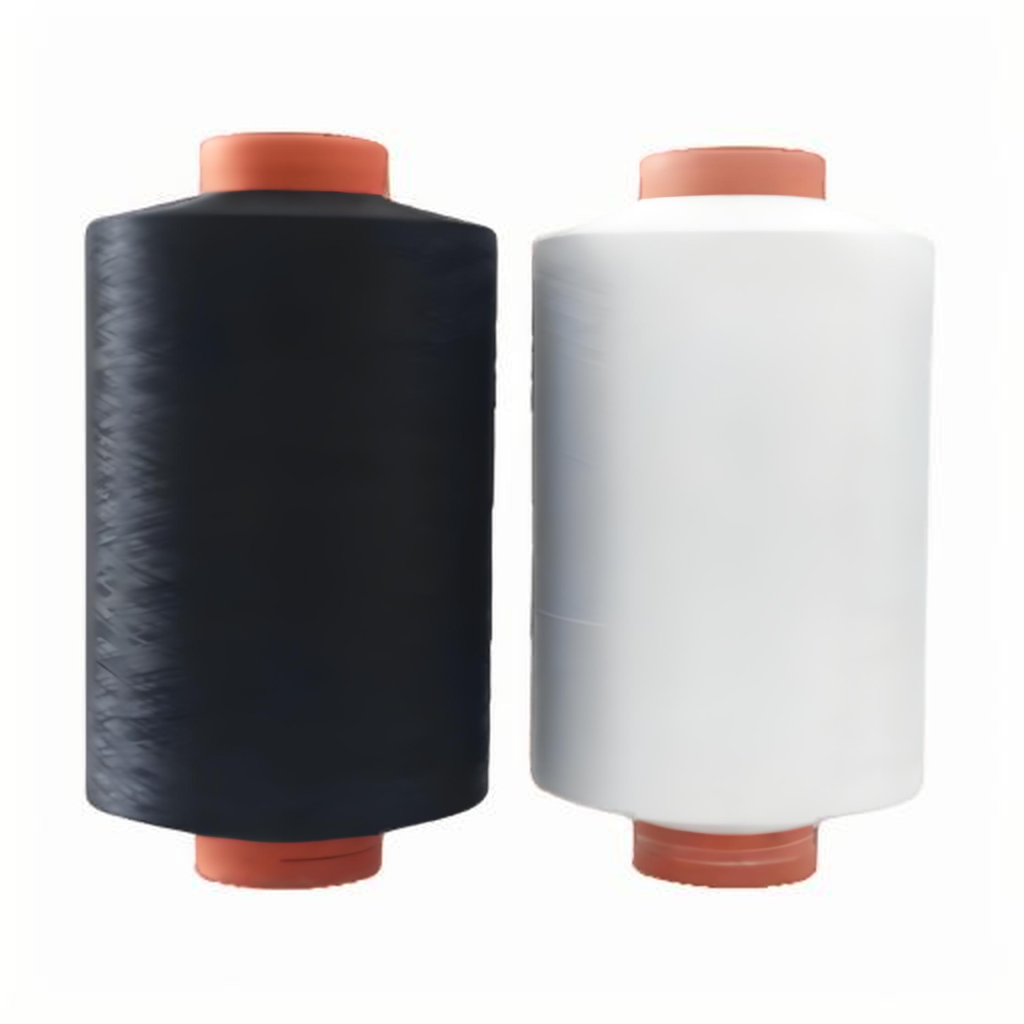
Environmental Advantages Of Recycled Polyester Yarn - China Yarns Manufacturer And Supplier
The textile sector is continuously looking for solutions to minimise its negative impact on the environment as knowledge of the necessity of environmental preservation and sustainable development is spreading on a global level. A material good for the environment, recycled polyester yarn is becoming more and more necessary in the market. Not only does it make effective use of waste resources, but it also greatly cut the necessary resource consumption.

Recycled Polyester Yarn
Application of recycled raw resources
The most important environmental advantage this kind of yarn provides is recycling the basic components required to produce recycled polyester yarn. After treatment and reprocessing, recycled polyester yarn is usually made from recycled polyester resources like discarded clothing, bottles, and other such objects. By means of this process, waste is effectively converted into new textiles, therefore reducing the need for virgin polyester fibres and, hence, the resource consumption.
Recycling polyester is achieved in many phases covering the following:
Waste polyester products are brought together and arranged throughout the collecting and sorting process so that they may be later processed.
Recycled polyester materials must be cleaned to remove any dirt or contaminants that could be there.
The treated polyester is subsequently broken down into little bits and ground into fibres. We call this procedure cutting and crushing.
After the polyester has been crushed, it is melted for the spinning process, therefore producing new yarn.
This approach not only lessens the effect waste has on the environment but also significantly reduces the raw material requirements for the manufacturing of new fibres.
Usage of resources with lesser
Producing recycled polyester yarn has the potential to significantly lower the natural resource use when compared to virgin polyester yarn fabrication. Apart from the great energy consumption involved in the raw material extraction from petroleum, it also causes notable environmental degradation. This extraction method determines how virgin polyester is manufactured. On the other hand, as recycled polyester yarn makes use of already-existing garbage, its production process requires a much less energy and resource consumption.
Particularly the production of recycled polyester yarn produces a decrease in terms of:
Oil extraction and subsequent usage: The environmental damage caused by oil extraction is much less as the production of recycled polyester yarn does not need any fresh oil extraction.
Water usage: While original polyester manufacturing requires a lot of water for cooling and treatment, recycled polyester yarn utilises a somewhat smaller quantity of water at the same period of manufacture.
Energy use: Because recycled polyester yarn’s production process uses less energy, the overall energy consumption is dropped.
Lower carbon emission levels
Furthermore very beneficial for the environment is the production of recycled polyester yarn, especially in terms of carbon emissions reduction. The extraction of raw materials from petroleum and the following chemical processing of virgin polyester generates a large amount of carbon dioxide (CO2) which is then expelled into the environment. The carbon emissions generated by recycled polyester yarn are much less than those of virgin polyester yarn, and there is a somewhat less dependency on oil in the manufacturing of this kind of yarn.
One may see the specific decline in carbon emissions in the following spheres:
In the course of manufacturing: The overall energy consumption is reduced and the production process of recycled polyester yarn is more efficient, therefore reducing the carbon emissions generated.
Waste handling: Recycling polyester yarn from discarded polyester materials helps to decrease the amount of pollution that garbage causes to the environment and so indirectly helps to lower the amount of carbon emissions produced by the treatment of waste.
Reduce the bad impact trash has on the surroundings
Making recycled polyester yarn might help to minimise the negative effects these wastes have on the environment in addition to making effective use of formerly wasted polyester resources. Should waste polyester products go unused, they are often burnt or dumped in landfills, therefore consuming a large portion of land resources and contaminating the soil and air.
Some of the methods in which waste polyester materials could be correctly handled via recycling and reuse are as follows:
Minimising the amount of waste kept in landfills helps to reduce the burden these sites must bear as well as the quantity of trash disposed of there.
The need for incineration should be lowered, therefore lowering the carbon dioxide and harmful pollutants generated by burning garbage.
Promoting the cause of environmentally friendly development
The textile sector has grown in a more ecologically conscious way in part due to the rising usage of recycled polyester yarn. Using recycled materials helps companies not only reduce their negative impact on the environment but also enhance the environmental image of their brands in the course of things. This improvement of environmental awareness will help the entire business to migrate towards a more sustainable route.
Apart from this, the use of recycled polyester yarn has helped to create technologies related to it as follows:
Novel recycling technologies consist of: To reach the aim of raising the quality of recycled polyester yarn, technology and treatment processes for recycling polyester yarn are continually under improvement.
Creating modern textile technologies: Recycled polyester yarn has improved product performance and design flexibility as well as helped the textile sector’s technical developments to be facilitated.

Recycled Polyester Yarn
Being an environmentally benign material, the recycled polyester yarn used in the textile sector offers great advantages. Recycling used polyester products and recycled polyester yarn has greatly helped to preserve the environment and advance environmentally friendly living. Among these contributions are less carbon emissions, less resource usage, and less environmental impact from rubbish. As environmental awareness rises and technology develops, it is expected that the uses for recycled polyester yarn will grow as well. This will help to fulfil the goals of sustainable development and promote the green revolution of the textile sector.
Feature Product
-
 DTY 100D/144F Polyester Yarn
DTY 100D/144F Polyester YarnDTY 100D/144F Polyester Yarn: The Ultimate Guid...
-
 DTY 100D/96F Polyester Yarn
DTY 100D/96F Polyester YarnDTY 100D/96F Polyester Yarn: The Soft, Stable S...
-
 DTY 75D/144F SIM Polyester Yarn
DTY 75D/144F SIM Polyester YarnDTY 75D/144F SIM Polyester Yarn: A Top Choice f...

